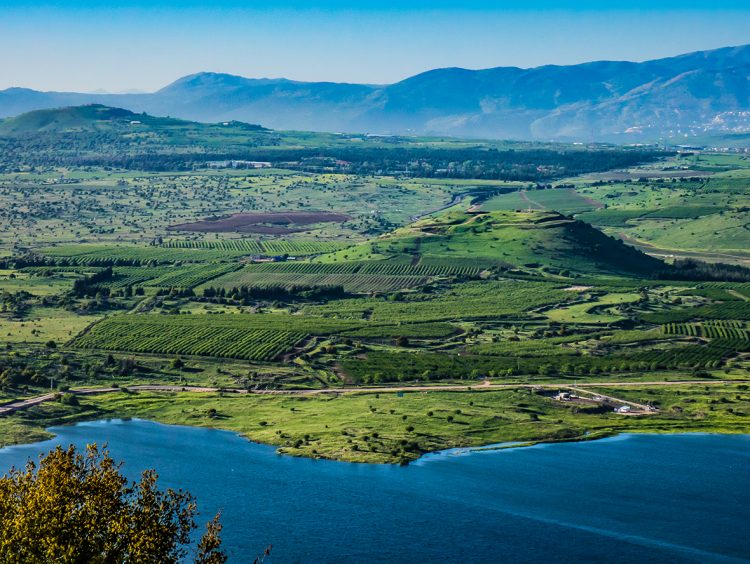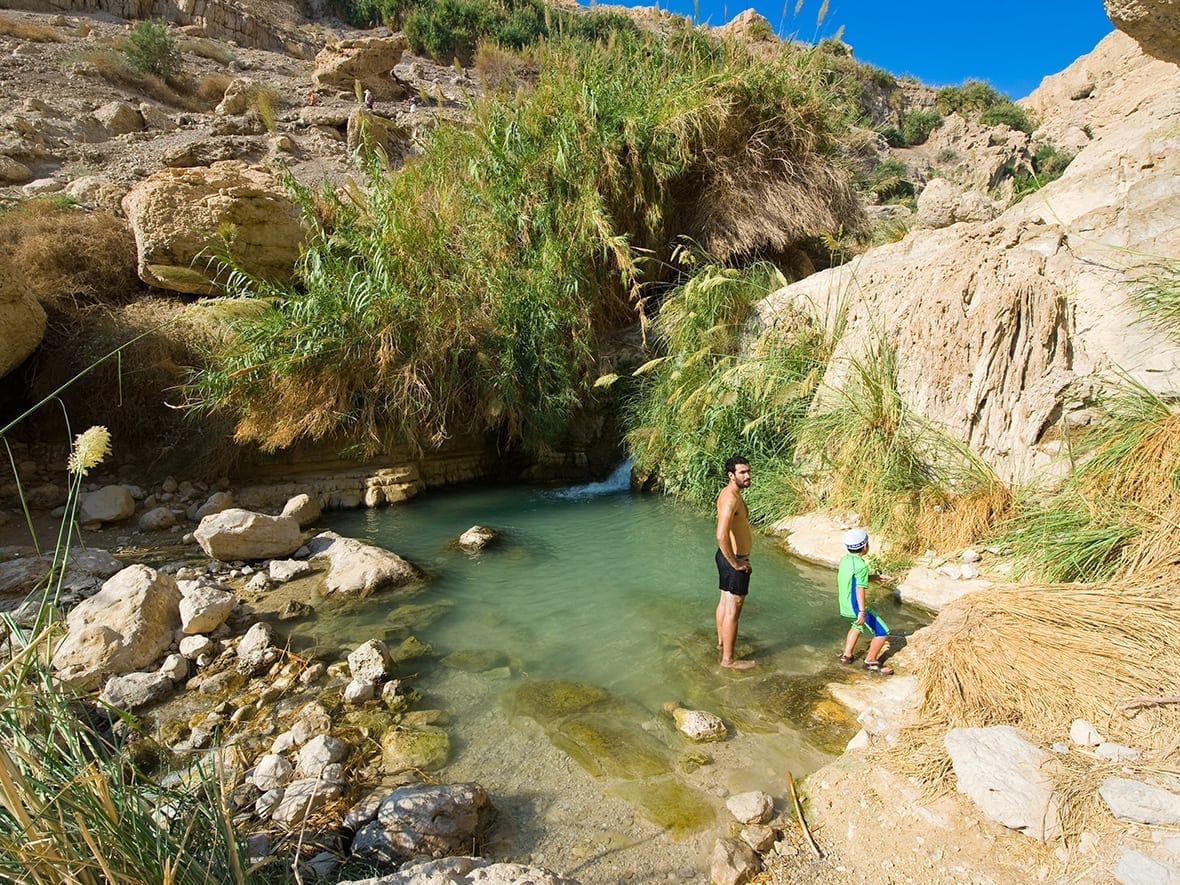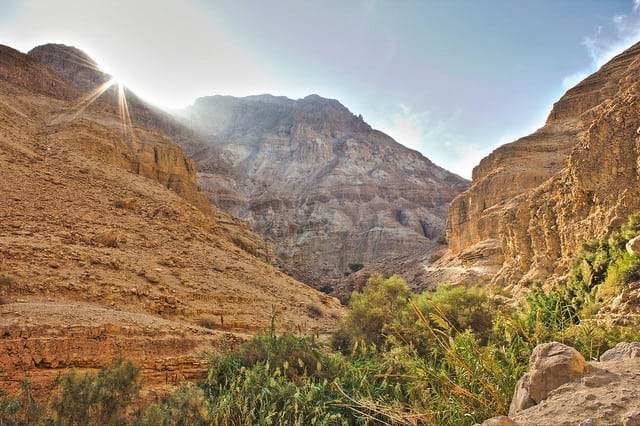With over 9,656 kilometers of trails and a diverse landscape, Israel is one of the top hiking destinations in the world. Israel hiking trails offer breathtaking sights from lush nature reserves and Biblical landmarks to caves and deserts.
The region has trails for every experience level but before you trek through Israel, take the time to plan for your hike with the following guide. Learn what to bring, how to read the trail markers and more.
DISCLAIMER: The recommendations provided in this article are for informational purposes only. Anyone that uses these recommendations does so of their own volition. DeadSea.com bears no responsibility for the results. We also recommend advising the local authorities before beginning any track.
Preparation Checklist for Hiking in Israel
Start planning your hike by reviewing this checklist of important considerations:
- No matter which Israel hiking trails you choose, find a map, review your path, and determine how long the trip takes. As you review the starting point and endpoint for the trail, decide where you intend to sleep at night.
- When reviewing your route, pay attention to the areas that you will pass through. If your trail takes you through nature reserves, you need to follow the regulations of the reserve, such as only camping in designated spots and not burning wood.
- Determine how long the hike will take to ensure that you bring enough provisions, including food and water.
- Purchase a prepaid SIM card when you arrive in Israel. You may need a phone during your hike for emergencies or to contact trail angels. Trail angels are individuals that assist hikers by providing food or accommodations.
- You could also consider signing up for a guided hike through some of the most popular trails. Guided tours save you the hassle of planning every detail.
What to Bring
When planning a one-day or two-day trip, you should be able to fit all your gear in a 30-liter backpack. For longer trips, upgrade to a 60-liter or larger bag. You will also likely need the following items:
- Two liters of water per day per person
- Cash to purchase food and items when resupplying at grocery stores
- Sunscreen
- Hat
- Hiking boots
- Modest clothing for when you reach settlements or religious sites
- Travel maps or guides
- Compass
- Flashlight
- Batteries
- First aid kit
- Sleeping bag
- Sleeping mat
- Food and cooking gear
Keep in mind that open fires are not permitted in Israeli nature reserves but you can use a camping stove. If you plan on preparing hot meals, a small propane tank and a single burner should fit in a standard backpack.
Israeli Trail Markings
To avoid potentially hazardous areas and stay on course, you should know how to read the trail markings when hiking in Israel without a guide. The markings feature a solid line in red, blue, green, or black against a white background. The solid line indicates the direction of the path.
For example, a straight red line with white on each side indicates that the trail continues straight. You may also see a solid line that forms a right angle against a white background. This indicates that you should turn right. When paths cross, the marking includes two separate solid lines on a white background.
Hiking Weather in Israel
Israel has comfortable winters and very hot summers. You may want to avoid hiking in the summer unless you have experience trekking in the heat.
The winter lasts from late October to mid-March. During October, the country often has frequent rainfall. Typically, December to April is considered the best time to hike in Israel. The conditions are often pleasant in most parts of the country.
Always check the weather forecast before your trip. Rainfall increases the risk of flash floods. Never cross a flooded stream or a dry stream that starts flowing. Flash floods occur very quickly and unexpectedly. They are most common in the Judaean Desert, the Jordan Valley, and parts of the Negev.
Israeli Nature Reserves
Some of the reserves and parks in Israel have entrance fees while others are free. Overnight stays are not allowed except in specific campsites.
Do not feed animals, burn wood, or interfere with nature. If you follow these rules, you should have no problem enjoying your time in these nature reserves:
- Amud Stream
- Bethsaida
- Carmel Hai-Bar
- Coral Beach
- Ein Gedi
- Ein Prat
- Gamla
- Horshat Tal
- Hula Valley
General Tips for Hiking in Israel
- The tap water in Israel is good. Refill your water whenever possible as most hiking trails do not have water taps.
- Bring at least 50 Shekel per day per person for food and essentials.
- The nature reserves are open on Shabbat but most shops are closed. If you need supplies on a Saturday, look for non-kosher restaurants and Christian or Muslim settlements.
- After rainfall, use caution when taking a trail that goes through canyons or streams due to the risk of flash floods and loose rocks.
- Store the numbers for the police (100), emergency health services (101), and the local field schools in case of an emergency.
Best Hikes in Israel
With close to a dozen wonderful trails, choosing the right path is not easy. Here are four of the best hikes in Israel:
- Ein Gedi Nature Reserve: The beautiful waterfalls, natural plant life, and variety of birds and animal species make this one of the most popular trails in Israel. About an hour into your hike, you will reach the majestic Wadi David Waterfall.
- Masada Snake Path: Starting at the base of Masada, the snake path winds 400 meters up from the Dead Sea to the top of the ancient fortress. It is a short hike with fantastic views of the Moab Mountains and the Dead Sea.
- Israeli National Trail: This is one of the hardest hikes in Israel due to its length. Covering 1025 kilometers, the entire trail takes 6 to 8 weeks to complete. For those with limited hiking experience or time, consider hiking selected parts of the trail.
- The Golan Trail: This trail is about 125 kilometers long and takes six to eight days to complete. It is shorter compared to the Israeli National Trail but still covers a lot of ground. The trail starts at Mount Hermon and ends near the Sea of Galilee, taking you past a variety of small villages
Frequently Asked Questions about Hiking in Israel
- Q: Is it safe to hike in Israel?
A: Yes, Israel offers a variety of hiking experiences that are considered safe for travelers. To ensure a positive experience, it’s always a good idea to follow standard safety practices like checking local weather forecasts and staying on designated trails. - Q: What is the best time of year to go hiking in Israel?
A: The best time to go hiking in Israel is during spring (March to May) and autumn (September to November) when the weather is mild. Summers can be very hot, while winters may bring rain and cooler temperatures, so plan accordingly. - Q: Can I camp while hiking in Israel?
A: Camping is allowed in designated areas in Israel’s national parks and some nature reserves. Just follow the rules and regulations, and leave no trace when camping in these areas.


